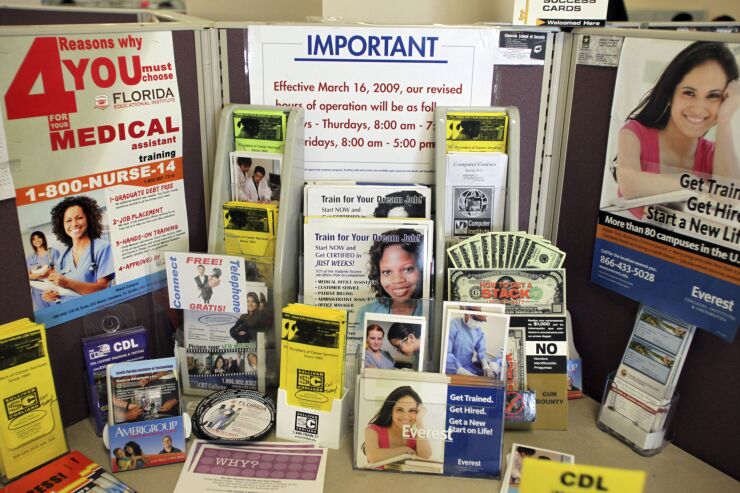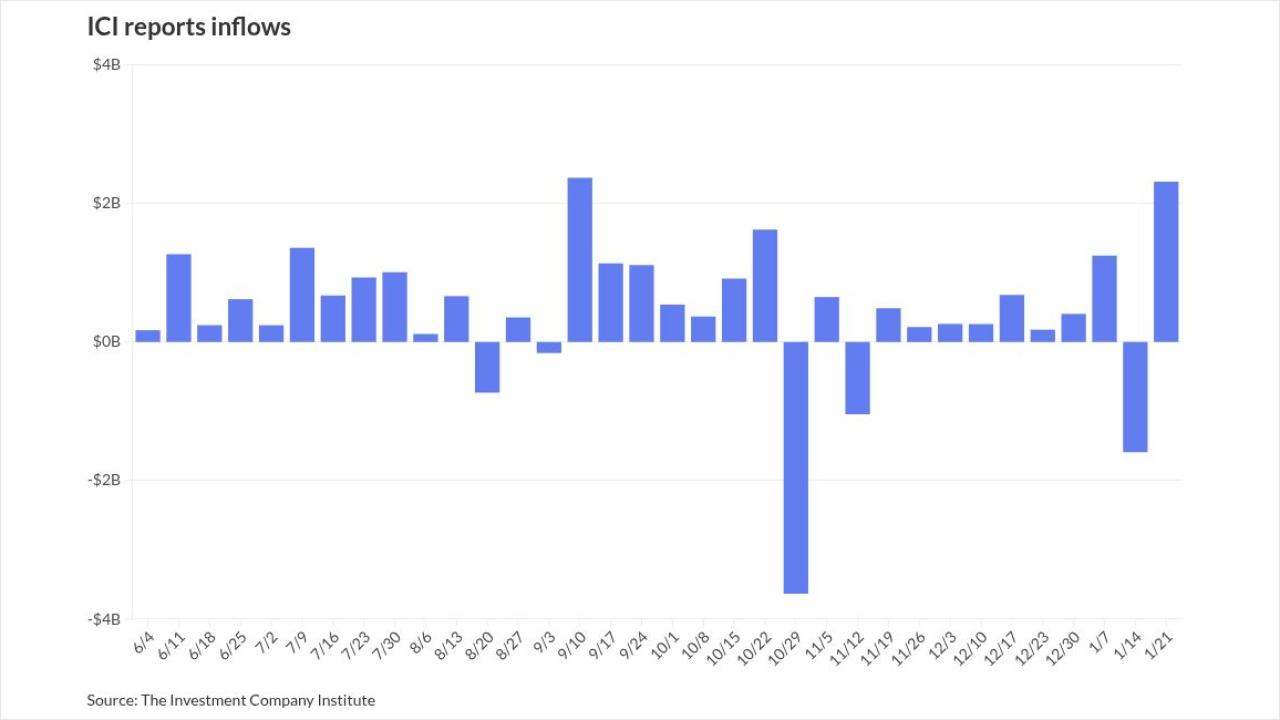Florida’s new law to collect online sales taxes on out-of-state purchases could net the state an additional revenue source of more than $1 billion a year.
Starting July 1, retailers who don’t have a physical presence in the state and sell items in Florida will have to charge and collect the 6% sales tax on sales to state residents.
According to the state Senate’s

Currently, consumers who make purchases on the internet or by mail order are required to report them and to pay the sales tax to the state’s Department of Revenue. Officials say few people do this and most of the revenue goes uncollected.
The new law directs the new revenue be used to replenish the state’s Unemployment Compensation Trust Fund, which has been severely depleted during the COVID-19 pandemic. After the new revenue replenishes the fund to its pre-pandemic levels, the law’s second provision will kick in to permanently lower the taxes businesses pay for commercial rents.
The new law’s second provision will permanently lower the rate on commercial rents to 2% from the current 5.5%.
The law was commended by the non-profit Florida TaxWatch.
“Out-of-state sellers have been flaunting existing law and shifting their responsibility to unsuspecting Floridians, forcing Florida consumers to calculate and remit their own taxes and subjecting them to audits and penalties that could result in penalties as high as 50% of the taxes due,” TaxWatch president Dominic Calabro said in a
Specifically, the law now requires “out-of-state retailers and marketplace providers with no physical presence in Florida to collect Florida’s sales tax on sales of taxable items delivered to purchasers in Florida if the out-of-state retailer or marketplace provider makes a substantial number of sales into Florida.”
State Senate President Wilton Simpson noted that online purchases are not tax-free.
"When government turns a blind eye on collecting taxes, businesses and Floridians who are following the law face a heavier burden,” he said in a release.
Richard Laviña, CEO of venture-backed accounting service Taxfyle, told The Bond Buyer the new sales tax law is one reason Florida is one of the most business-friendly states in America.
“It's poised to be an important mechanism for bringing things 'back to normal' in a post-pandemic Florida, by making it more affordable for businesses to have a central place from which to operate, while simultaneously helping the commercial real estate industry win back a lot of ground that may have been lost through the last year," he said.

Gov. Ron DeSantis signed the bill (S.B. 50) without statement or ceremony on April 19 after the state legislature approved it earlier in the month. It had been considered by the
Most of those states that impose sales taxes have enacted them on out-of-state purchases since 2018 when the U.S.
“A primary reason elected Florida officials were not one of the first states to enact economic nexus was a lack of a credible use for the additional tax collections,” said Scott Peterson, vice president for U.S. tax policy and government relations at Avalara, a software company for automated tax compliance.
“The pandemic emptied Florida’s unemployment fund. If Florida did not find a way to refill their unemployment fund, it would have resulted in an automatic unemployment tax increase on Florida businesses,” Peterson told The Bond Buyer.
Robert Peters, managing director and national practice leader of the sales and use tax practice at Duff & Phelps, a Kroll Business, said that after years of failed legislative efforts, Florida becomes the last state, except for Missouri, to enact laws imposing sales tax collection obligations on marketplace providers and remote sellers of goods and services delivered into the state.
“The enactment of this legislation ends a years-long debate where brick and mortar retailers complained that remote sellers gained an advantage by not having a requirement to collect sales tax on sales into Florida,” Peters told The Bond Buyer. “The impetus for finally passing the legislation is, of course, revenue … an estimated $1 billion annually that will be used to offset the unemployment trust fund which became depleted during the COVID-19 pandemic due to massive layoffs, and would have required increased unemployment tax to be imposed on businesses to cover the shortfall.”
He said that many big businesses had been collecting the taxes for several years and may not be affected as much as smaller ones.
“The billion-dollar revenue projection may not be quite so bright for the ‘Sunshine State’ as many (most) of the large remote retailers have already been collecting sales tax on sales into Florida for a number of years, including Amazon, Overstock, and eBay. So, for the larger companies’ compliance with the new law is not an issue,” he said.
He noted that smaller remote sellers, who have sales of less than $100,000 in the prior year, are exempt in Florida’s provisions and may provide added complexity.
This uncertainty includes "determining which goods/services are taxable, implications of bundling non-taxable with taxable goods on invoices (i.e., computer software, warranty, shipping, handling) all are non-taxable in Florida unless bundled with otherwise taxable goods/services," he said. "The state of Florida has yet to issue specific guidance; although included in the new law is a special amnesty provision which allows dealers to avoid interest and penalties on any past due filings (not limited to remote sellers) if they come forward and register before Oct. 1."
The decrease in the unemployment fund triggered an increase in rates for all employers beginning in January, with rates forecast to rise even more over the next few years until the fund was replenished to pre-pandemic levels.
Since the coronavirus pandemic began last year, the state has seen 2,269,806 cases as of May 9, with 35,731 resident deaths and 36,445 total deaths. As of Sunday, 9.3 million residents have been vaccinated with at least one dose with 2.2 million being fully vaccinated.

According to the state Senate, in the six months before April 2020, the state’s average monthly re-employment assistance benefits expense was $27.2 million. However, when the pandemic hit in April 2020, Florida’s monthly re-employment assistance benefits expense surged between 800% and 2,000%.
The benefits expense is currently 473% over the six-month average amount before April 2020, the Senate said, and without any action had been estimated to continue at elevated levels for the foreseeable future.
“This smart provision prevents a sudden and significant rise in taxes Florida employers would have to pay to refill the fund. For many this might be the difference between keeping their doors open and their staff employed,” Calabro said.
The reduction in commercial rent could also be a lure to new businesses, according to Simpson.
“By reducing the business rent tax, we will continue to help existing businesses, encourage more entrepreneurs, and have an even better recruiting portfolio for businesses we want to lure away from highly regulated, high-tax states,” he said.
“The pandemic hit Florida hard in terms of sales tax revenue collected by retailers as the bulk of consumers went online,” Julio González, CEO at Engineered Tax Services, told The Bond Buyer. “This clearly helps entice people here in Florida to get back out shopping at local stores and taxes collected online will be used to lower business taxes.”
On April 30, the House and Senate reached an agreement on the $101.5 billion fiscal 2021-2022 budget, which includes $6 billion in reserves.
The budget total does not include $6.7 billion spending approved the legislature that will come from the estimated $10 billion being sent to the state under the American Recovery Plan Act. The spending will be effective on receipt of the federal funds.
The budget is about $9.2 billion, or 10%, higher than the fiscal 2020-21 budget of $92.3 billion. It includes $36.3 billion of general fund spending, a 4.6% rise from the current year budget and will be funded primarily from general revenue collections and nearly $200 million in trust fund transfers.
Other highlights of the budget include $1,000 bonus payments for first responders, classroom teachers, principals and early learning instructors.
It also includes fully funding the Medicaid program, which as a result of the pandemic has over 1 million additional enrollees for a caseload of 4.7 million, an increased cost of more than $1.2 billion. It also fully funds the KidCare program, which serves 229,000 children with high-quality health insurance.
The budget has been sent to the governor who can approve or reject it. He has the authority of line-item veto, which can be used to delete any specific item in it before the budget is finalized.





